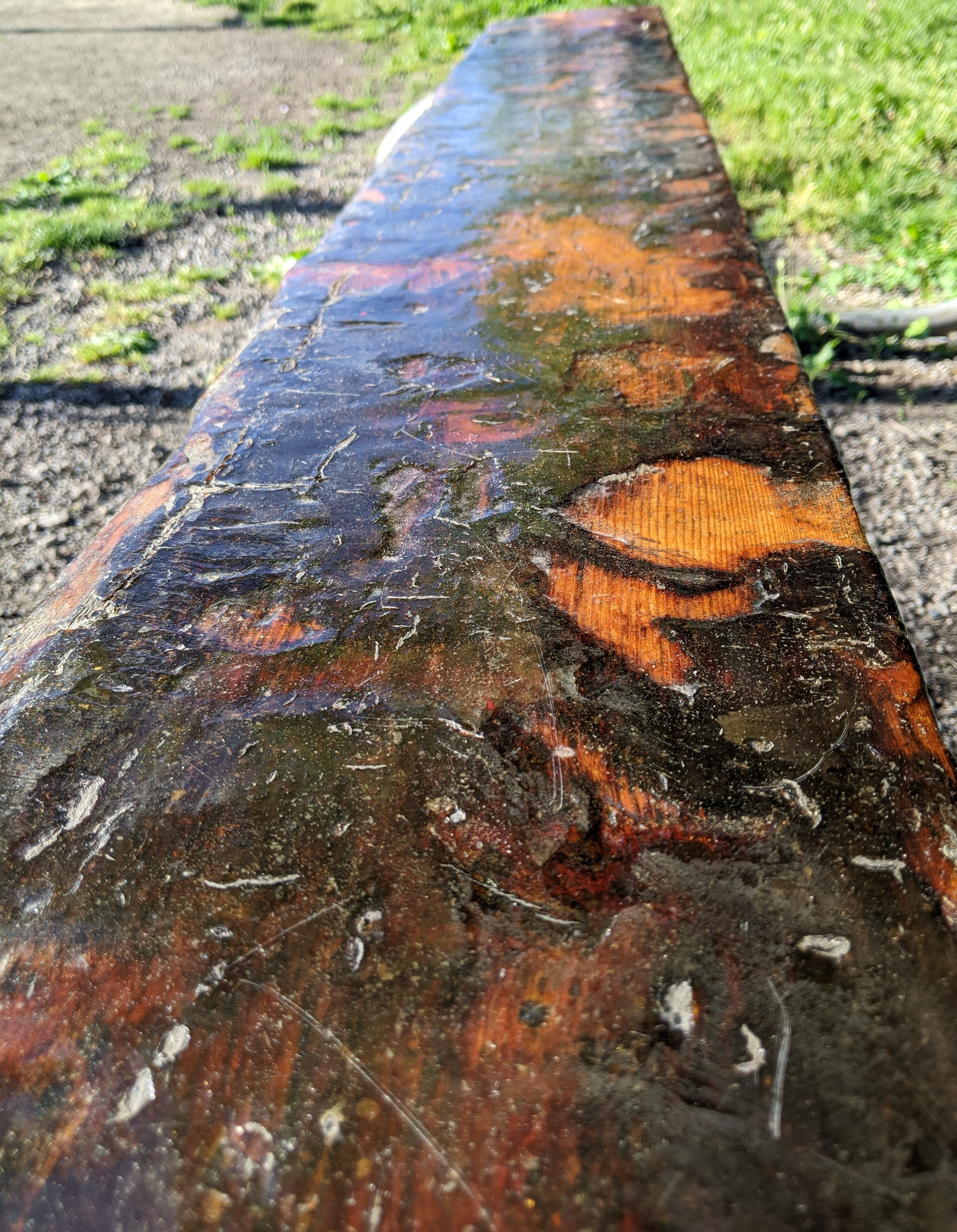I’m guessing this is the result of layers of slathering a fresh layer of finish on these tables. To be honest, I kind of like the look. Any idea what type of finish this might be?
Here’s a slightly different angle:

I’m guessing this is the result of layers of slathering a fresh layer of finish on these tables. To be honest, I kind of like the look. Any idea what type of finish this might be?
Here’s a slightly different angle:

Urethane. The dark spots are big chunks of dirty plastic built up over many years. Lineseed or any oil doesn’t build up like this. You can see how much the surface has been raised from the level of the knot and clean wood. And how the dark spots scratch white like plastic. Also I’ve been around these a lot.
Thanks! I’m guessing oil based applied over many many years and the low spots are due to a mixture of mechanical damage (it is a park table after all) and flaking?
Polyurethane, a pretty common plastic, which is usually in a volatile solvent but can also be water based. Its very cheap and easy to apply. It adds new material to the surface every time and is often pretty thick. Oil soaks into wood and doesn’t protect the surface from mechanical damage. Its also expensive and difficult to apply. The low spots are where the decades of plastic have chipped away revealing the original wood. If you got a sample from the high spots you could count the layers like rings in the wood and figure out when the put the bench in.
Yep the only thing I can think of that would create a finish like this, and survive outside on a horizontal surface is yacht varnish
That, coupled with not sanding back before recoating would create this finish exactly. Looks to be well over a decade of recoating